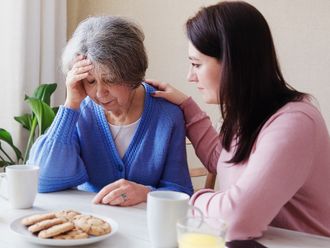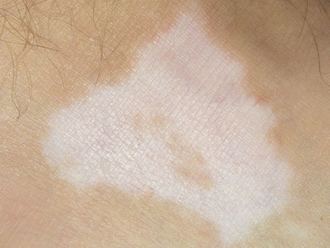
Most people will have bad days, or weeks, when coping with life’s stresses seems more of a challenge than usual. Even the most fortunate and optimistic among us will face some ups and downs, and feeling overwhelmed at times is normal. Hopefully though, with time, support and a little R&R, the stress passes. But sometimes it doesn’t, and ‘coping’ in the usual sense of the word no longer works, leading to what’s commonly known as a ‘nervous breakdown’.
Reaching this crisis point is something that can happen to anyone – indeed, reports suggest that even hard-nosed media mogul Simon Cowell was pushed to the brink last summer. In an updated chapter of his book on Cowell, biographer Tom Bower says the X Factor boss had to withdraw from filming auditions in the US, turned his mobile phone off for six weeks, and cut himself off from work and friends because his hectic lifestyle had changed him into a “weird vampire”.
This sort of news highlights the fact that even the most successful of individuals are vulnerable to extreme stress – newspaper headlines over the years show hundreds of reports of high-flying public personas who have collapsed under the pressure, from the usually poised supermodel Kate Moss and singer Britney Spears to the generally calm and collected Bollywood star Vidya Balan, whose reported outburst on the set of a Sujoy Ghosh film in 2010 had speculators worrying about her health and her ability to cope with her huge workload.
But at what point does feeling stressed turn into a full-blown breakdown? Dr VM Mathew, a professor and a consultant psychiatrist at the Canadian Specialist Hospital in Dubai, says a breakdown refers to a state whereby someone has reached a threshold and is at the point of collapse. “In psychiatry, this state is diagnosed as depression, with the degree ranging from mild to moderate, severe and psychotic,” says Dr Mathew.
Dr Jim Bolton, consultant psychiatrist at Surrey’s St Helier Hospital in the UK, says rather than being a single diagnosis, it’s more about the culmination of signs that a person is finding it increasingly difficult to cope, and has reached a point where they’re struggling to function with everyday life. Depression and anxiety are key factors.
Dr Mathew says in most cases depression adversely affects every aspect of the individual’s life including work, social activities, physical health, relationships and marriage. When people are extremely low or stressed, rather than wanting to reach out to others, they often want to shut themselves away. “People with depression often want to cut themselves off from their family and don’t want to get up in the morning. They just want to pull the covers over their head. But cutting themselves off can often make the situation worse,” Bolton explains.
Inability to function
As experts point out, depression is far more than just feeling low. “In a breakdown, someone is no longer able to function in the way they were able to,” says Marjorie Wallace, chief executive of UK mental health charity Sane. It causes many other problems, including difficulty making decisions, inability to cope with everyday tasks, loss of interest and enjoyment in life, sleeplessness, lack of appetite, lack of self-confidence and feelings of inadequacy and hopelessness. Some depressed people will even contemplate drastic measures, says Dr Mathew.
“We all feel fed-up, miserable or sad at times in our lives, particularly when we’re stressed,” says Bolton. “But what we might call a nervous breakdown, or becoming ill with depression, happens when those feelings of sadness or significant stress don’t lift after a few days – they carry on for weeks or months, or become so bad that they interfere with everyday life,” he adds. Anxiety, which can also lead to breakdowns, is the state when people feel a heightened sense of worry and are extremely ‘on edge’ about things. While depression and anxiety can occur entirely separately, they often go hand in hand, and many people will go to their GP with symptoms of both.
Dr Bolton says that if a person’s depressed feelings go on for several weeks, and are so severe that they can’t carry on with their normal life, or if they have thoughts that life isn’t worth living, they need help. “They may have thoughts about wanting to sleep and not wake up to escape from the situation, without necessarily feeling that they want to end their life,” he says. “But when those thoughts begin to creep in – that perhaps it wouldn’t matter if they were run over by a bus or didn’t wake up in the morning – that’s an indicator they should seek help.”
What are the causes?
So what drives people over the edge? It varies greatly from individual to individual. According to Dr Mathew common causes among UAE patients are living alone, lack of close friends, working in shifts, long working hours, extreme hot weather and less than ideal working and living conditions.
Dr Atul Aundhekar, GM and chief medical director, iCare Clinics, Landmark Group, Dubai, adds that deficiencies in certain minerals, particularly vitamin B12 and magnesium, can be a contributing factor. B vitamins play a role in producing brain chemicals that affect mood and other brain functions, and magnesium also plays an important role in biochemical reactions all over the body, so a deficiency could make you more susceptible to depression. Eating animal products such as meat, eggs and milk for B vitamins and seafood for magnesium, or supplements containing both, can help rule this out.
Often, it’s more a case of a build-up of extreme stress over a period of time, and the most important aspect is to recognise when things are becoming a problem. Beth Murphy, of the UK-based mental health charity Mind, explains that callers to the Mind helpline often say they’re not able to cope any more and can’t understand what’s happening to them, because they feel sad all the time and can’t stop crying. “We’ve seen a surge in calls to our helpline recently, and certainly the economic climate in the UK isn’t helping,” she says. “We’ve seen an increase in calls about employment and worries about money and debt. That’s playing on people’s minds and adding to the stresses that might already be there.”
While stress from environmental factors is often a trigger, Dr Bolton says it’s important to remember that for some people, depression can arise ‘out of the blue’.
Certain people are at higher risk of a breakdown.
Dr Aundhekar says that women are more prone than men due to their hormonal makeup. Other groups at risk are those suffering from post-traumatic stress disorder and highly burnt-out individuals, he says.
Research also suggests that there may be genetic factors – some people may be more prone to depression and anxiety if there’s a family history. Early life experiences can sometimes play a part too, as this is when people develop many of the foundations for their coping mechanisms later in life, and too much anxiety in early life may lead to increased anxiety in adulthood. “It’s partly constitutional, and partly early-life experiences,” says Bolton. “But even as adults, we carry on learning how to cope with things.”
What can be done?
Avoiding a breakdown may be possible, though, if a person is able to recognise early on that their stress levels or depression is becoming a problem, and address the issue before it gets worse. This could mean taking time out, as Cowell reportedly did, or seeking professional support, by visiting a GP or getting in touch with a mental health organisation. For some people there is still something of a social stigma attached to the idea of nervous breakdown, but this should not prevent anyone from seeking help, as getting advice early could prevent the problem from escalating, says Dr Aundhekar.
Dr Mathew says treatment of depression depends on its severity and causes. “Mild depression can be managed by counselling and psychotherapy. Moderate and severe depression will require antidepressant medication. Psychotic depression requires treatment with both antidepressants and anti-psychotic medication and in some cases in-patient care.”
Lifestyle changes can also go a long way in reducing the risk of depression, anxiety and breakdowns. Dr Bolton recommends eating a good, balanced diet and being aware that ignoring the problem and distracting yourself with self-destructive behaviour is likely to make depression worse, rather than better. Regular exercise can also help maintain steady mental well-being, and socialising and taking part in hobbies is also important. And if you do feel that things are becoming unmanageable, talk about it. “If you’re feeling very stressed and don’t seem to be bouncing back, and if it’s affecting work and family life and interfering with friendships, particularly if you feel life isn’t worth living, it’s worth talking it over with a friend or relative and considering going to see your GP about it,” Bolton says. “The main thing is, don’t keep it to yourself.”











